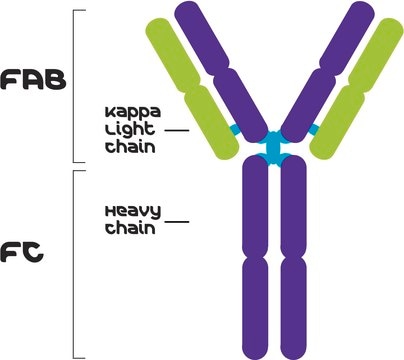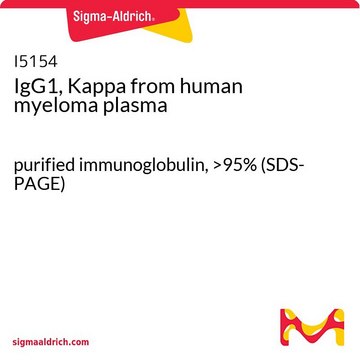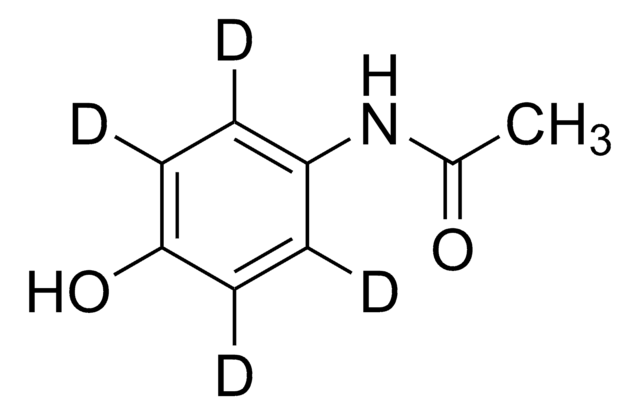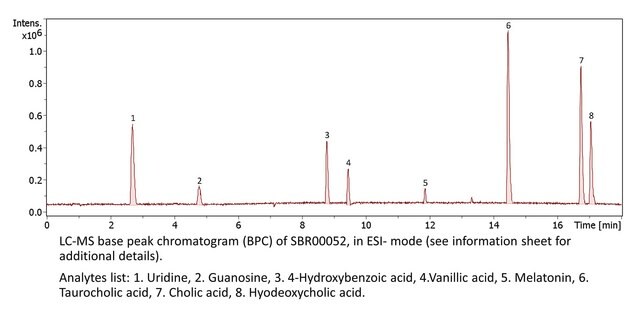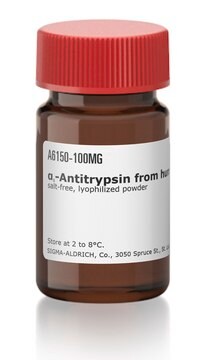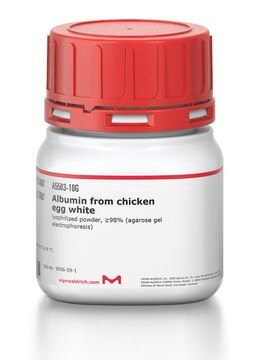M1398
IgG1, Kappa from murine myeloma
clone MOPC 31C, ascites fluid, lyophilized powder
Synonyme(s) :
Mouse IgG1-κ
Se connecterpour consulter vos tarifs contractuels et ceux de votre entreprise/organisme
About This Item
Produits recommandés
Source biologique
mouse
Niveau de qualité
Conjugué
unconjugated
Forme d'anticorps
ascites fluid
Clone
MOPC 31C, monoclonal
Forme
lyophilized powder
Température de stockage
2-8°C
Modification post-traductionnelle de la cible
unmodified
Vous recherchez des produits similaires ? Visite Guide de comparaison des produits
Description générale
The MOPC 31C tumor line that produces mouse IgG1,k is a mineral oil-induced plasmacytoma originated and carried subcutaneously in BALB/c mice. Immunoglobulin G (IgG) belongs to the immunoglobulin family and is a widely expressed serum antibody. An immunoglobulin has two heavy chains and two light chains connected by a disulfide bond. It mainly helps in immune defense. It is a glycoprotein. IgG is a major class of immunoglobulin. Mouse consists of five immunoglobulin classes- IgM, IgG, IgA, IgD and IgE. Mouse IgG is further divided into five classes- IgG1, IgG2a, IgG2b and IgG3.
Application
IgG1, Kappa from murine myeloma has been used in immunohistochemistry.
Actions biochimiques/physiologiques
IgG antibody subtype is the most abundant of serum immunoglobulins of the immune system. It is secreted by B cells and is found in blood and extracellular fluids. It provides protection from infections caused by bacteria, fungi and viruses. Maternal IgG is transferred to fetus through the placenta that is vital for immune defense of the neonate against infections.
Immunoglobulin G (IgG) participates in hypersensitivity type II and type III reactions. IgG2a has cytotropic properties and IgG2 molecules have the ability to activate the complement system. IgG helps in opsonization, complement fixation and antibody dependent cell mediated cytotoxicity.
Reconstitution
Reconstitute with 1 ml deionized water.
Clause de non-responsabilité
Unless otherwise stated in our catalog or other company documentation accompanying the product(s), our products are intended for research use only and are not to be used for any other purpose, which includes but is not limited to, unauthorized commercial uses, in vitro diagnostic uses, ex vivo or in vivo therapeutic uses or any type of consumption or application to humans or animals.
Code de la classe de stockage
11 - Combustible Solids
Classe de danger pour l'eau (WGK)
WGK 3
Point d'éclair (°F)
Not applicable
Point d'éclair (°C)
Not applicable
Équipement de protection individuelle
Eyeshields, Gloves, type N95 (US)
Faites votre choix parmi les versions les plus récentes :
Déjà en possession de ce produit ?
Retrouvez la documentation relative aux produits que vous avez récemment achetés dans la Bibliothèque de documents.
The Laboratory Rat (1998)
Time course of growth factor staining in a rabbit model of traumatic tractional retinal detachment
Westra I, et al.
Graefe'S Archive For Clinical and Experimental Ophthalmology = Albrecht Von Graefes Archiv Fur Klinische Und Experimentelle Ophthalmologie, 233(9), 573-581 (1995)
The Immunoglobulins: Structure and Function (1998)
Molecular Genetics of Immunoglobulin (1987)
Specific IgG for cat allergens in patients with allergic conjunctivitis.
Miyama A, et al.
International Ophthalmology, 35(4), 575-586 (2015)
Notre équipe de scientifiques dispose d'une expérience dans tous les secteurs de la recherche, notamment en sciences de la vie, science des matériaux, synthèse chimique, chromatographie, analyse et dans de nombreux autres domaines..
Contacter notre Service technique